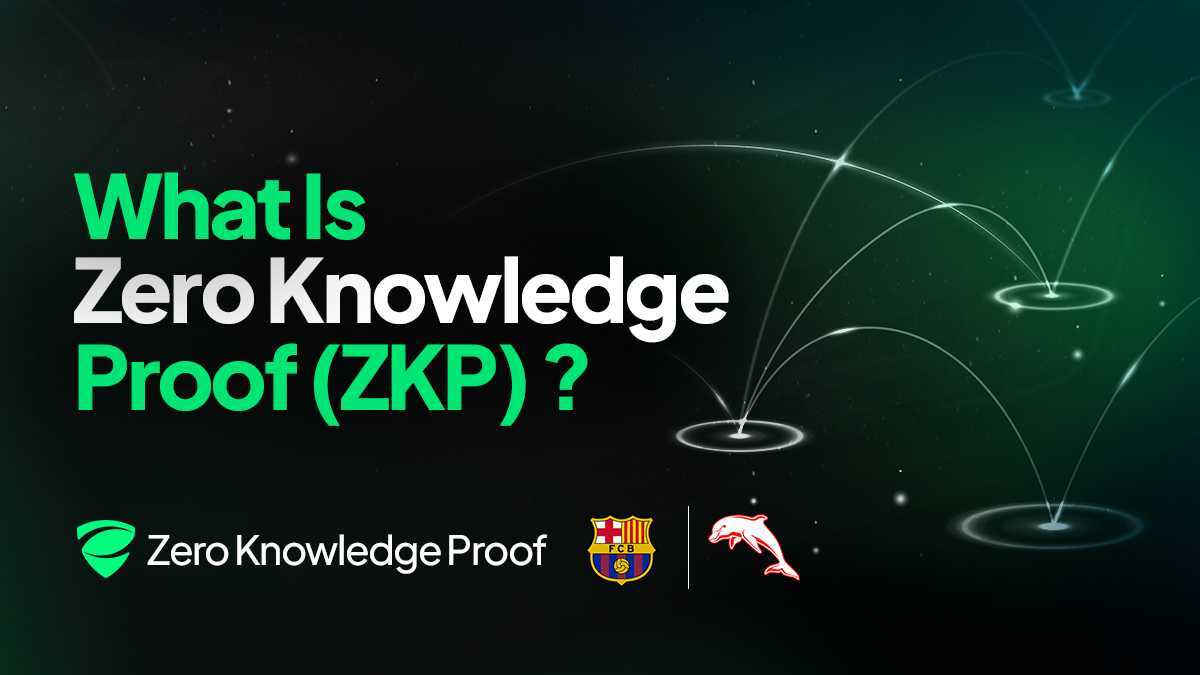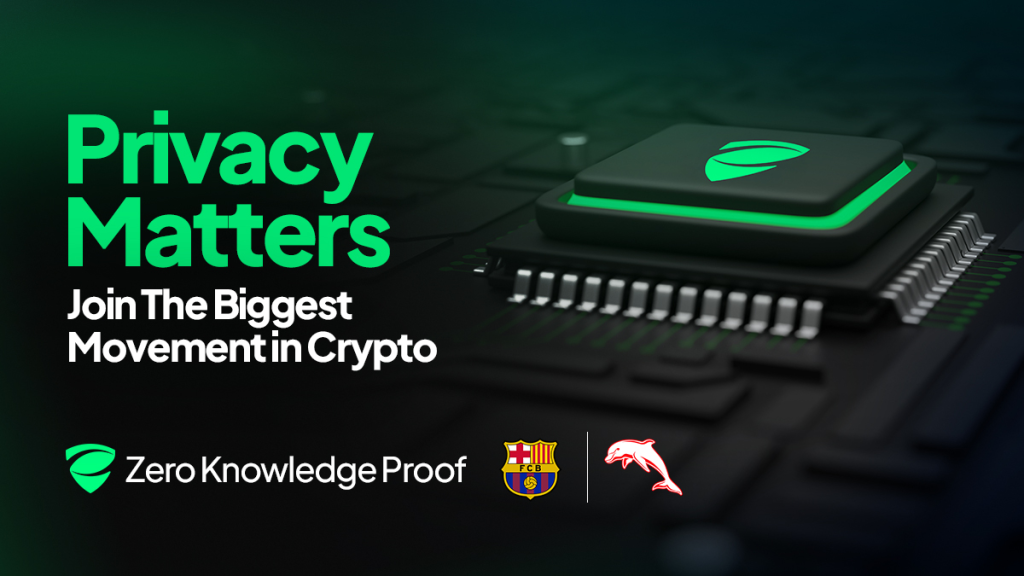
Organizations today rely on increasingly sensitive data to train models, guide decisions, and run automated systems, making privacy-aligned computation a priority rather than a preference. This shift is one reason blockchains built for confidential processing, such as Zero Knowledge Proof, are appearing more often in evaluations of the top crypto to buy, especially among teams handling regulated or high-risk workloads.
Healthcare groups want diagnostic support without exposing patient records. Financial institutions require real-time assessments without compromising customer details. Sports organizations seek performance insights without revealing competitive strategies.
These pressures highlight why many professionals exploring the top crypto to buy look toward networks designed from the ground up for private, verifiable compute, and why the ZKP crypto fits that growing need.
What you'll learn 👉
Why Today’s Compute Models Fall Short
Most organizations still rely on conventional compute environments, but these systems struggle to balance performance with privacy. Several limitations show up repeatedly, and they often explain why privacy-focused compute networks stand out when evaluating the top crypto to buy with long-term relevance.
1. Cloud Compute Exposes Too Much
Even encrypted environments eventually require data to be decrypted for processing, which creates risk at the most critical stage: the moment AI models examine raw information.
2. Encryption Alone Is Insufficient
Techniques like homomorphic encryption remain slow and costly, making them impractical for workloads that require regular, real-time computation.
3. Trust-Based Systems Can’t Scale
When sensitive information travels through cloud pipelines, data centers, and model endpoints, organizations must trust each layer not to leak or misuse it.
4. Regulation Demands More Control
Healthcare, banking, biometrics, and sports analytics now fall under strict privacy requirements. Compute systems must provide evidence of compliance, not just promises.
These gaps show why a new approach is needed, one that enables computation to happen privately while still producing verifiable outcomes.
The Rise of Verifiable Compute
Before introducing Zero Knowledge Proof (ZKP) as a network, it helps to understand the broader idea guiding it, which is verifiable computation.
Verifiable compute enables someone to run an operation and prove the result is correct without revealing the data used to generate it. A simple analogy: confirming someone is over 18 without revealing their birthdate.
This model is increasingly essential for AI workloads where:
- Inputs are sensitive
- Outputs must be trusted
- Processing must be auditable
- Privacy cannot be compromised
As AI accelerates, verifiable compute has become a foundational requirement rather than a research concept. This foundational value is why ZKP appears on many lists of the top crypto to buy for teams focused on long-term utility.
Where ZKP Fits Within the Private Compute Space
Zero Knowledge Proof (ZKP) was not built as a typical blockchain or generic smart contract platform but as a purpose-driven environment for private computation. The core premise is simple: give organizations a way to run advanced workloads while maintaining confidentiality at every step.

ZKP differs from networks that added privacy features after launch. Its architecture, funding, and operations were constructed from the start with privacy, verification, and distributed computation as the central pillars. These design principles are also why ZKP is gaining visibility as one of the top cryptos to buy among privacy-focused institutions and developers.
How ZKP Structures a Private Compute Network
Instead of categorizing ZKP by layers or individual components, it’s more useful to understand how its pieces function together to create private, verifiable computation.
Protecting Data During Computation
ZKP uses proof systems that allow computations to be validated without exposing underlying information.
This ensures:
- Sensitive data never leaves its protected environment
- External participants can verify outputs
- Organizations gain both privacy and auditability
These properties are essential for healthcare diagnostics, model training, and financial evaluation.
Distributing Computation Across Many Participants
ZKP combines two mechanisms:
- Proof of Intelligence for AI-related tasks
- Proof of Space for storage-oriented functions
This allows the network to distribute computation globally while preventing centralization of compute power.
Ensuring Verifiable Results Without Exposure
Every result is paired with a cryptographic proof. Instead of trusting the system, users verify the outcome instantly. This eliminates the need for auditing raw data or retracing compute steps.
Supporting Modern Workloads Including AI
ZKP supports both EVM and WASM environments, giving developers flexibility. This makes it possible to run private ML inference, confidential business logic, and privacy-friendly data modeling.
Real Use Cases for Privacy-Protected Compute
ZKP’s framework is designed for practical adoption, not theoretical use. Several sectors illustrate why private computation is becoming indispensable, especially for those analyzing the top crypto to buy based on utility and enterprise applicability.
Healthcare
Diagnostic models often rely on highly sensitive images or data. ZKP allows analysis without exposing underlying records, enabling privacy-aligned AI-assisted decisioning.
Sports Analytics & Performance
ZKP has entered real sports environments through partnerships such as those with:
These organizations handle physical performance data, predictive modeling, and competitive strategies, which are areas where privacy is critical.
Enterprise & Financial Systems
Banks, insurers, and analytics firms deal with confidential datasets. Private compute ensures fraud detection, compliance checks, and risk modeling can be conducted without revealing personal information.
Distributed AI Verification
Proof Pods (ZKP’s hardware devices) perform real AI computations, generate proofs, and support distributed model processing outside centralized GPU farms.
How ZKP Builds Fair Participation Into Its Network
A privacy-aligned compute network must also ensure that participation remains open, transparent, and resistant to concentration. This is where ZKP’s live Initial Coin Auction (ICA) structure enters, and why it attracts interest within discussions about the top crypto to buy for fair-access ecosystems.The auction is live right now, and participation is already picking up fast.
Daily Auctions for Transparent Pricing
Instead of fixed presale tiers, ZKP uses a 24-hour proportional auction:
- Participants enter contributions
- Price is set by actual demand
- Allocation is determined through verifiable on-chain mechanics
This removes hidden advantages and avoids artificial pricing.
Contribution Limits for Fair Access
A daily $50,000 cap per participant prevents oversized allocations, keeping distribution more balanced.
Fully On-Chain Settlement
Each day’s pricing, participation, and final allocations can be verified by anyone through the public ledger.
The Role of Hardware in a Private Compute Network
Software alone cannot decentralize a compute ecosystem, which is where ZKP’s Proof Pods come in. These are physical devices that support private computation at scale and contribute to why it is regarded as a top crypto to buy for builders who value real-world infrastructure. The Proof Pods are available for purchase now, with units shipping globally within five days.
What Proof Pods Actually Do
They handle:
- AI inference
- Model verification
- Execution of compute tasks
- zk-proof generation
Each device turns useful work into verifiable output.
Rewards Based on Actual Work Performed
Pods operate on a task-based structure where daily performance ties directly to the network’s previous-day reward index.
Why Hardware Matters
By enabling global, user-owned compute power, Proof Pods reduce reliance on centralized GPU providers and strengthen the decentralization of AI-related work.
When Should Organizations Consider Zero Knowledge Proof?
ZKP is a strong fit for teams that need:
- Confidential AI processing
- Secure analytics on regulated data
- Private business logic
- Verifiable computation
- Distributed compute without centralized exposure

It’s also relevant for developers creating applications where privacy and auditability are core functional requirements.
Final Thoughts
Private computation is quickly becoming a core requirement across industries as AI expands into areas where confidentiality and verifiable results are essential. Zero Knowledge Proof (ZKP) demonstrates how a network built specifically for privacy, audited computation, and distributed workloads can support these emerging standards while remaining adaptable to real-world applications.
Its ability to validate results without exposing underlying data offers a practical blueprint for responsible AI adoption. With an architecture centered on privacy-aligned execution, transparent participation mechanisms, and optional hardware for distributed compute, ZKP presents a model suited for sectors facing rising regulatory expectations.
As organizations evaluate long-term infrastructure options, systems that deliver private, verifiable computation, such as ZKP, are increasingly seen as foundational to the next generation of data-driven operations.
Find Out More At:
FAQ
1. What problem is Zero Knowledge Proof designed to solve?
ZKP solves the challenge of running sensitive computations while keeping the underlying data fully confidential.
2. How does ZKP keep information private during AI processing?
It uses cryptographic proof systems that validate results without exposing the original inputs.
3. Why is verifiable compute important for modern organizations?
It allows teams to trust results without reviewing raw data, which is essential for regulated or high-sensitivity workloads.
4. How does ZKP ensure fairness in its distribution model?
All pricing and allocations settle on-chain daily, giving participants full visibility into every step.
5. Do Proof Pods require technical expertise to operate?
No. They are designed for straightforward setup, automatic task execution, and self-managed proof generation.
DISCLAIMER: CAPTAINALTCOIN DOES NOT ENDORSE INVESTING IN ANY PROJECT MENTIONED IN SPONSORED ARTICLES. EXERCISE CAUTION AND DO THOROUGH RESEARCH BEFORE INVESTING YOUR MONEY. CaptainAltcoin takes no responsibility for its accuracy or quality. This content was not written by CaptainAltcoin’s team. We strongly advise readers to do their own thorough research before interacting with any featured companies. The information provided is not financial or legal advice. Neither CaptainAltcoin nor any third party recommends buying or selling any financial products. Investing in crypto assets is high-risk; consider the potential for loss. Any investment decisions made based on this content are at the sole risk of the readCaptainAltcoin is not liable for any damages or losses from using or relying on this content.







